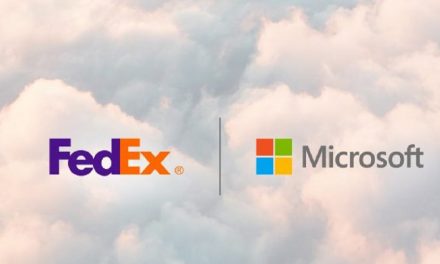
Microsoft Technology Innovation Helps Bring Postal Industry Into the Electronic Age
How do you send physical mail to a business person whose most frequent address is at 37,000 feet? That may sound like a riddle, but to Earth Class Mail Corp., it’s a serious question.
This week at POST-EXPO 2007 — an international postal technology conference held in Barcelona, Spain — new and innovative offerings are being showcased that address this question. Earth Class Mail’s solution is a Web-based software system, developed on Microsoft .NET, that seeks to do for postal mail what cellular technology did for telephone calls: make it mobile by making it digital.
Earth Class Mail’s software is a compelling example of the kind of innovation Microsoft champions through a postal vertical industry team within its public-sector organization. Focused on meeting the needs of the worldwide postal industry, this team aims to apply Microsoft’s solutions, technologies and global partner network to help postal service providers and organizations gain new efficiencies and business opportunities in the Internet era.
To learn more, PressPass spoke with Maxim Lesur, Worldwide Postal Industry managing director at Microsoft. Ron Wiener, CEO of Seattle-based Earth Class Mail, joined in the discussion.
PressPass: Maxim, can you begin by explaining how Microsoft’s focus on the postal industry came about and the strategy that drives it?
Lesur: Microsoft is focusing on the postal industry because of the incredible transformation taking place in the postal sector and the opportunities we see for postal organizations to play a key role in the digital world, as they’ve done so effectively in the physical world. Our strategy for posts has three pillars.
First, we use Microsoft technology and our partner network to help postal organizations build solutions that address enterprise efficiency, sales and marketing efficiency, supply chain visibility and optimization, branch renewal and e-postal services. Second, we focus on innovation to meet customer needs. We work closely with postal operators and listen to the ideas they want to bring to market, and we work with them to apply technology to make those ideas real. The third pillar of our strategy is a longer-term value proposition. It involves building secured communications services that bridge the physical world and the electronic world. The Earth Class Mail solution, which enables people to see their physical mail in electronic form, is an excellent example there.
PressPass: Ron, what challenges does the postal industry face today?
Wiener: The biggest is the advent of the Internet, which is driving down the volume of first-class mail worldwide. That’s a huge issue for post offices because it’s their main profit source. Along with that, you have the growth of Internet advertising, which will eventually have an impact on direct mail revenue. Direct mail is still the largest sector for advertising spending in the United States, but some countries are already seeing a decline, due in part to environmental concerns and in part to Internet marketing, which is growing 10 times faster. Bottom line, as companies continue to move toward paperless transactions and paperless advertising, post offices have to figure out how they can remain relevant in the Internet age. At the same time, they’re dealing with ever-increasing operating expenses due to rising fuel and healthcare costs and pension liabilities. The revenue per delivery point has actually been going down for the past six or seven years. In the United States, for example, this is the first time since Ben Franklin started the U.S. Postal Service that revenue per delivery point has declined. As populations keep growing and post offices can’t squeeze any more productivity improvement out of their current automation technology, they face the problem of what they will do in the future.
The declining market affects countries differently, depending on which of three economic tiers they fall into. In the first tier are a handful of large countries including the United States, the United Kingdom, France and Germany that have a relatively healthy direct mail business, a large volume of mail and good productivity. They can survive a long time, even despite this decline. In the second tier are the bulk of countries that don’t have much of a direct mail industry, due to privacy laws, environmental laws and other reasons. These countries lack the infrastructure pieces needed to build a direct mail industry that could reconstitute revenues. And in the third tier are developing countries that don’t necessarily have universal postal delivery. Remote villages in these countries will likely have an Internet connection before they see a postal carrier.
In all three of these scenarios, the technology we’re delivering on a Microsoft platform will enable post offices to remain economically viable without a huge investment in infrastructure. Our solution will also enable them to remain relevant in the minds of postal customers on the Internet. By that I mean we’re offering postal agencies a roadmap for translating their national trust brand onto the Internet and becoming the trusted online communications provider for the country.
PressPass: How does Earth Class Mail’s solution address these issues?
Wiener: We deliver your postal mail to wherever you are in the world, any time of day. I like to describe it by recalling the days before mobile phones, when you’d tell someone “Call me at my office at 2 o’clock and I’ll be there waiting for your call.” Now you just give people your mobile number and they can call you anywhere, any time. Postal mail is one of the last forms of analog communications, where you have to be in a certain place to receive it. Our Earth Class Mail service is doing for mail what the mobile phone did for telephone calls.
We do this by imaging the outside of the envelopes and by showing you, on the Web, both sides in full color. Once the envelopes are in your online mail box, you can read a certain letter by asking the service to open it and scan it for you. Or you can recycle it, shred it, transfer it to your accountant, archive it, forward it to your hotel and so forth. Essentially, anything you would tell an admin to do with a certain piece of mail, you can do with a mouse click from anywhere in world.
We currently have customers in 120 countries who receive their mail online at addresses we’ve given them, much like P.O. boxes. This service appeals to all sorts of consumers who don’t have a single, permanent address, from retirees traveling in RVs to multiple homeowners to college students. On the business side, our customers range from people who travel for a living to multinational contractors to small companies that move frequently. We also serve a lot of government agencies, as well as companies that are based overseas but conduct business in the United States — whether that’s on eBay or Amazon.com or their own Web site.
We’re now taking the Earth Class Mail vision to post offices around the world. They’re seeing that if they make our solution available nationwide to anyone with an Internet connection, they can deliver mail at much less cost. And, they can sell related services that are traditionally outsourced, such as document scanning, document storage, document destruction and forward shipping. In Europe, for example, a number of post offices have already acquired document outsourcing companies. They provide services like mailroom management, remittance processing and document scanning, but they’re not integrated with the post office. What we provide is a complete platform for a post office to move itself online, tie together all these “inside the envelope” services and create new revenue streams while dramatically reducing the amount of mail that is physically delivered.
PressPass: How does Earth Class Mail align with Microsoft’s vision for the postal industry?
Lesur: Our goal is to support the postal industry in building an electronic channel that will help bring the industry into the multi-channel world, and Earth Class Mail is an excellent partner in this regard. I’m not suggesting that physical mail will disappear. It’s sure to decrease over time, but paper-based direct marketing is still a very strong media when it’s well targeted. The story we’re telling today is that it makes sense for post offices to let people choose how they want to receive their mail, as well as when they want to receive it, where and in what form. The Earth Class Mail solution fits into this story perfectly because it allows you to receive physical mail electronically in a very convenient way. Also, the Earth Class Mail team has excellent knowledge of the postal industry and a strong background in the document management business. When you consider all the databases and security requirements behind their solution and the images that require storage, our technology was a great fit for Earth Class.
PressPass: How does Microsoft technology feature in Earth Class Mail?
Wiener: The biggest news for us is converting our solution to Microsoft .NET technology. As of today, all Earth Class Mail customers are on our new Microsoft .NET-based platform. I’ve been using the new platform, and it’s blazingly fast. Underlying that, we use Microsoft SQL Server. We also plan to integrate with Microsoft SharePoint technology, and we will integrate with Microsoft Outlook 2007 and the mobility applications. We’re also looking into using a Microsoft Windows Live Hotmail and MSN back-end so we can deliver documents securely via e-mail. The idea behind the Outlook plug-in is that it provides automatic keyless encryption. Using a backend Web mail application like Windows Live Hotmail, we could inject documents directly into a customer’s Hotmail account and be sure they remain confidential.
Post offices are excited about the prospect of an Outlook plug-in and integration with the major Web mail vendors. For example, let’s say a national postal service in Europe is using our platform and two colleagues in that country need to exchange a document. They can send it via e-mail over the Internet, but if it contains confidential information such as personal data that might risk identity theft, it won’t be guaranteed secure. However, the sender could elect to click on the postal service’s logo and send the document over a secure connection, through Earth Class Mail servers, and be sure that information stays confidential. This scenario offers the benefit of associating a national postal service logo — a secure, trusted brand — with the sending of mail. We see this as the wave of the future.
PressPass: What led you to choose Microsoft technology to build this solution?
Wiener: The no. 1 reason was scalability. We’re talking to post offices around the world, but we’re a small company relative to the large prime contractors they usually deal with for automation. Having the credibility and scalability of the Microsoft platform dispenses with that issue. Also, by being able to integrate into Microsoft Outlook, we can offer our customers a better user experience. If we deliver mail right into their Outlook client, our customers won’t have to log onto our Web site every time they want to see their mail. Choosing a Microsoft technology platform also enables us to integrate into mobility applications for PDAs. This is all part of the vision we hold in common with Microsoft, in terms of helping post offices remain relevant in the future. Because post offices are the arbiters of physical addresses today, they’re viewed as the trusted and official way to send and receive mail. Post offices need a platform that will move this role online. In other words, if you send someone a contract or a certified document electronically, it’s considered just as authenticated and legal as if it were delivered physically. Microsoft is clearly one of the few companies in the world that can develop such an important platform.
PressPass: Does Microsoft technology play a role in the security of online postal mail delivery?
Wiener: Microsoft technology contributes to both the security and confidentiality of our solution. The Microsoft .NET platform has built-in support for a security infrastructure, assuring better security and reliability on Earth Class Mail servers. Our system is also designed with a number of operational security features. For example, every piece of mail that comes in is bar-coded, and that bar code stays with it for its entire lifecycle so we can monitor and track it. Confidentiality is even more important because people are understandably concerned about who might be scanning their documents. Here again, we have a number of physical operations and business practices that ensure privacy, including a new video witness system we’re developing that will enable customers to view their own mail being processed at any time. There are elements of Microsoft software throughout this aspect as well, because we integrate to various kinds of imaging equipment and bar-code readers and so on that all plug into Windows-based workstations and the .NET platform.
PressPass: What further innovations do you foresee as Earth Class Mail and Microsoft continue working together?
Wiener: One of the most exciting things we’re working on with Microsoft conceptually is the delivery of a new generation of advertising. We see an opportunity to create a hybridized model that combines the best of search engine advertising models, which provide marketers with a lot of customer information, with the best of direct mail advertising models, which are scalable and produce repeatable revenue results. In our hybrid model, whenever customers accept or delete a piece of mail from their electronic mailboxes, they’re providing tiny clues to their interests and preferences. Assuming we have permission to observe their actions, we might see, for example, that a certain customer is in the market for a luxury car and allows in ads for Lexus and BMW and Mercedes. We can then make use of that knowledge and offer advertisers much greater targetability. Also, the ads you deliver to an electronic mailbox can be rich media, which again involves Microsoft technology. Studies show that video is six times more compelling than static text, so we know that’s the wave of the future.
Lesur: Solutions like Earth Class Mail enable this new relationship between consumers and advertisers. And between them, you have the postal providers, which today are pretty much confined to the physical world. Solutions that create a bridge into the electronic world open the way for them to offer a lot of interesting services. We believe that postal operators can take advantage of their strong trusted brand to build these opportunities on a large scale. If they deploy a concept like this, they can create a huge revenue opportunity for themselves.
PressPass: What goals do you have for Microsoft’s postal industry approach going forward?
Lesur: We’ll continue working with partners like Earth Class Mail to build solutions that help bring the postal industry into the electronic age. In parallel, I’m working on a concept called the secured electronic mailbox, which is the equivalent of the physical mailbox but in electronic form. We recognize that much of the postal correspondence people receive today is electronic at the beginning of the value chain. Then it’s printed, put in an envelope and transported over a logistical network, finally arriving in your mailbox. We envision a day when a large part of communications are sent in electronic form only, without the need to be printed. In other words, big mailers would direct that electronic information through a secure channel so that it arrives in your electronic mailbox, which is your one and only individual secured e-mailbox. A lot of governments around the world are looking for such solutions to improve their productivity, to have more efficient connections with their citizens and to help save the environment as part of their e-government strategy. Posts are and will play a key role in delivering trusted communications in electronic form. This work is an important part of our commitment to deliver solutions that can support the transformation of postal service delivery.











